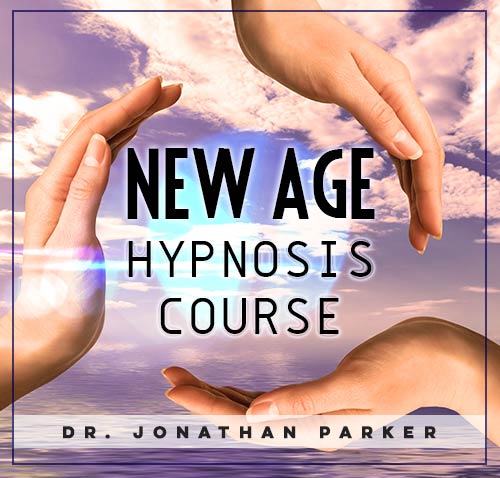Hypnosis for Migraine Management

Looking for more amazing products? Check out our online store and explore our collection here! Happy shopping!
Before diving in, please note: This post is for informational purposes only. If you’d like to know more about how we approach topics, feel free to check out our friendly Disclaimer Page.
Hey there, amazing readers! 
We’re committed to delivering quality posts, and your support (even just sticking around despite the ads) means everything to us. So, bear with us, and thanks for helping us keep the good vibes rolling. Now, on to the fun stuff!
TRANSLATE BUTTON AT THE END OF THE ARTICLE
A Quick Overview
Migraines are a common neurological condition characterized by intense, throbbing headaches, often accompanied by nausea, vomiting, and sensitivity to light and sound.
These debilitating headaches can last for hours or even days, significantly impacting a person’s quality of life.
While there are conventional treatments available for managing migraines, such as medication and lifestyle changes, some individuals turn to alternative therapies like hypnosis for relief.
In this article, we will explore the role of hypnosis in managing migraines, how it works, its benefits, what to expect during a hypnosis session, finding a qualified hypnotherapist, research studies supporting its efficacy, success stories, safety considerations, and integrating hypnosis into a comprehensive migraine treatment plan.
Understanding Migraines: Causes and Symptoms
Migraines are believed to be caused by a combination of genetic, environmental, and neurological factors.
Common triggers for migraines include stress, hormonal changes, certain foods, lack of sleep, and sensory stimuli.
Symptoms of migraines can vary but often include severe head pain, pulsating or throbbing sensations, nausea, vomiting, and sensitivity to light and sound.
Some individuals may experience an "aura" before the onset of a migraine, which can manifest as visual disturbances or tingling sensations in the body.
Migraines can significantly impact a person’s ability to function, leading to missed days of work or social activities.
Conventional Treatments for Migraines
Conventional treatments for migraines typically include over-the-counter or prescription medications to alleviate pain and reduce inflammation.
Lifestyle modifications such as stress management, regular exercise, adequate sleep, and maintaining a healthy diet can also help prevent migraines.
In some cases, doctors may recommend preventive medications to reduce the frequency and severity of migraines.
However, these treatments may not always be effective for everyone, leading some individuals to explore alternative therapies like hypnosis for migraine management.
The Role of Hypnosis in Managing Migraines
Hypnosis, also known as hypnotherapy, is a therapeutic technique that involves entering a state of focused attention and heightened suggestibility to promote relaxation, concentration, and altered perceptions.
In the context of migraines, hypnosis is used to help individuals manage pain, reduce the frequency and intensity of headaches, and improve overall quality of life.
Hypnotherapy for migraines focuses on addressing underlying stress, anxiety, and emotional triggers that may contribute to the onset of headaches.
How Hypnosis Works for Migraine Relief
During a hypnosis session for migraine relief, a trained hypnotherapist will guide the individual into a state of deep relaxation.
Through verbal cues and imagery, the therapist helps the individual access their subconscious mind to explore and reframe negative thought patterns and beliefs related to migraines.
By fostering a sense of control, empowerment, and relaxation, hypnosis can help individuals better cope with pain, reduce stress levels, and manage triggers that may exacerbate migraines.
The goal is to create a positive mindset and promote overall well-being.
Benefits of Using Hypnosis for Migraine Management
Non-invasive: Hypnosis is a non-invasive therapy that does not involve medication or surgical procedures, making it a safe and natural approach to migraine management.
Customized: Hypnotherapy sessions are tailored to the individual’s specific needs and goals, allowing for a personalized treatment plan.
Holistic: Hypnosis addresses the mind-body connection, focusing on emotional and psychological factors that may contribute to migraines, leading to a more holistic approach to treatment.
Empowering: Through hypnosis, individuals can gain a sense of empowerment and control over their migraines, reducing feelings of helplessness and anxiety.
Long-lasting: Some individuals may experience long-lasting benefits from hypnosis, including reduced frequency and intensity of migraines over time.
What to Expect During a Hypnosis Session
During a hypnosis session for migraine management, the individual can expect to be guided into a state of deep relaxation by the hypnotherapist.
The therapist may use calming music, soothing imagery, and gentle verbal cues to help induce a trance-like state.
Once in this relaxed state, the therapist will work with the individual to identify triggers, negative thought patterns, and coping strategies related to migraines.
The individual remains conscious and in control throughout the session, able to respond to the therapist’s suggestions while feeling deeply relaxed and focused.
Finding a Qualified Hypnotherapist
When seeking a hypnotherapist for migraine management, it is advisable to look for a professional who is trained, certified, and experienced in hypnotherapy techniques.
Credentials from reputable organizations and positive client testimonials can help ensure the therapist’s qualifications and expertise.
Additionally, it is essential to feel comfortable and at ease with the hypnotherapist, as a strong therapeutic alliance is crucial for the success of hypnosis sessions.
Consulting with healthcare providers or seeking referrals from trusted sources can also aid in finding a qualified hypnotherapist.
Research and Studies on Hypnosis for Migraines
Research studies have shown promising results regarding the efficacy of hypnosis for migraine management.
A study published in the International Journal of Clinical and Experimental Hypnosis found that hypnotherapy was effective in reducing the frequency and intensity of migraines in participants.
Another study in The Journal of Headache and Pain reported that hypnosis was associated with significant improvements in pain intensity, frequency of headaches, and emotional well-being in individuals with migraines.
While more research is needed to further support these findings, the existing studies suggest that hypnosis can be a valuable tool in managing migraines.
Combining Hypnosis with Other Migraine Treatments
Hypnosis can be used in conjunction with other migraine treatments to enhance overall efficacy and symptom management.
Individuals undergoing hypnotherapy for migraines may also benefit from combining it with medications, lifestyle modifications, relaxation techniques, and stress management strategies.
By integrating hypnosis into a comprehensive treatment plan, individuals can address both the physical and emotional aspects of migraines, leading to a more holistic approach to care.
Consulting with healthcare providers and hypnotherapists can help individuals determine the best combination of treatments for their unique needs.
Success Stories of Using Hypnosis for Migraines
Many individuals have reported positive outcomes from using hypnosis for migraine management.
Success stories include reduced frequency and intensity of headaches, improved quality of life, enhanced coping skills, and a greater sense of well-being.
Some individuals have found that hypnosis not only helps alleviate pain but also addresses emotional issues, stress, and anxiety that may contribute to migraines.
By sharing these success stories, individuals considering hypnosis for migraines can gain insight into the potential benefits and outcomes of this alternative therapy.
Safety and Side Effects of Hypnosis for Migraines
Hypnosis is generally considered safe when performed by a trained and qualified hypnotherapist.
Side effects are rare but may include dizziness, headache, or temporary confusion immediately following a session.
It is essential to work with a reputable hypnotherapist, communicate openly about any concerns or experiences during sessions, and follow recommended guidelines for post-hypnosis self-care.
Individuals with certain mental health conditions or medical concerns should consult with their healthcare providers before undergoing hypnosis for migraine management to ensure its safety and suitability for their specific needs.
Integrating Hypnosis into Your Migraine Treatment Plan
Integrating hypnosis into a comprehensive migraine treatment plan can offer individuals a holistic approach to managing their condition.
By working with a qualified hypnotherapist and combining hypnotherapy with other treatments such as medication, lifestyle modifications, and stress management techniques, individuals can address the physical, emotional, and psychological aspects of migraines.
Establishing a consistent hypnotherapy schedule, practicing self-care techniques learned during sessions, and maintaining open communication with healthcare providers can enhance the overall effectiveness of incorporating hypnosis into a personalized migraine treatment plan.
Conclusion
In conclusion, hypnosis can be a valuable tool for managing migraines by addressing underlying stress, anxiety, and emotional triggers that may contribute to headaches.
With its non-invasive, customized, and holistic approach, hypnotherapy offers individuals a safe and empowering way to cope with pain, reduce the intensity and frequency of migraines, and improve overall well-being.
By working with qualified hypnotherapists, integrating hypnosis with other migraine treatments, and following recommended guidelines for post-hypnosis care, individuals can unlock the potential benefits of hypnosis in their journey towards better migraine management.
If you are considering hypnosis for migraines, consult with healthcare providers and experienced hypnotherapists to explore how this alternative therapy can complement your existing treatment plan.

The Enlightenment Journey is a remarkable collection of writings authored by a distinguished group of experts in the fields of spirituality, new age, and esoteric knowledge.
This anthology features a diverse assembly of well-experienced authors who bring their profound insights and credible perspectives to the forefront.
Each contributor possesses a wealth of knowledge and wisdom, making them authorities in their respective domains.
Together, they offer readers a transformative journey into the realms of spiritual growth, self-discovery, and esoteric enlightenment.
The Enlightenment Journey is a testament to the collective expertise of these luminaries, providing readers with a rich tapestry of ideas and information to illuminate their spiritual path.
Our Diverse Expertise
While our primary focus is on spirituality and esotericism, we are equally passionate about exploring a wide range of other topics and niches 

To ensure we provide the most accurate and valuable insights, we collaborate with trusted experts in their respective domains 
Our blog originally focused on spirituality and metaphysics, but we’ve since expanded to cover a wide range of niches. Don’t worry—we continue to publish a lot of articles on spirituality! Frequently visit our blog to explore our diverse content and stay tuned for more insightful reads.
Hey there, amazing reader! 
Check out our store here and take a peek at some of our featured products below! Thanks for being awesome!












